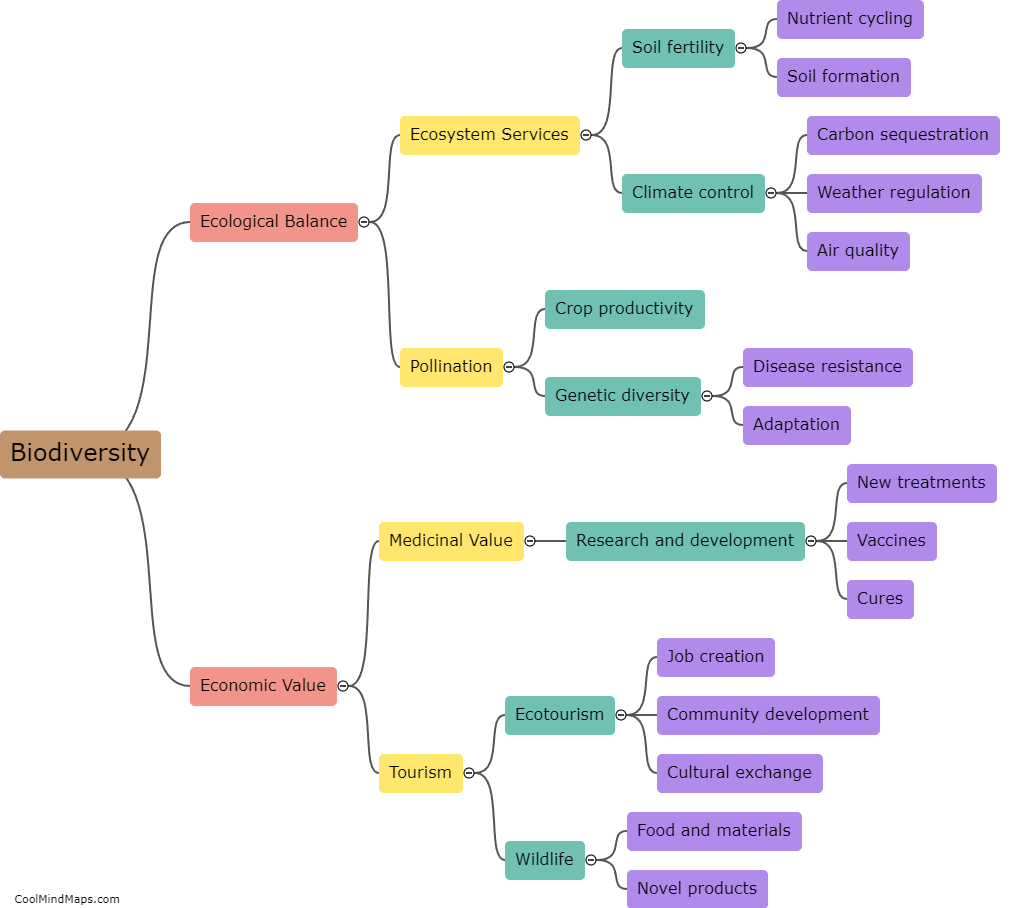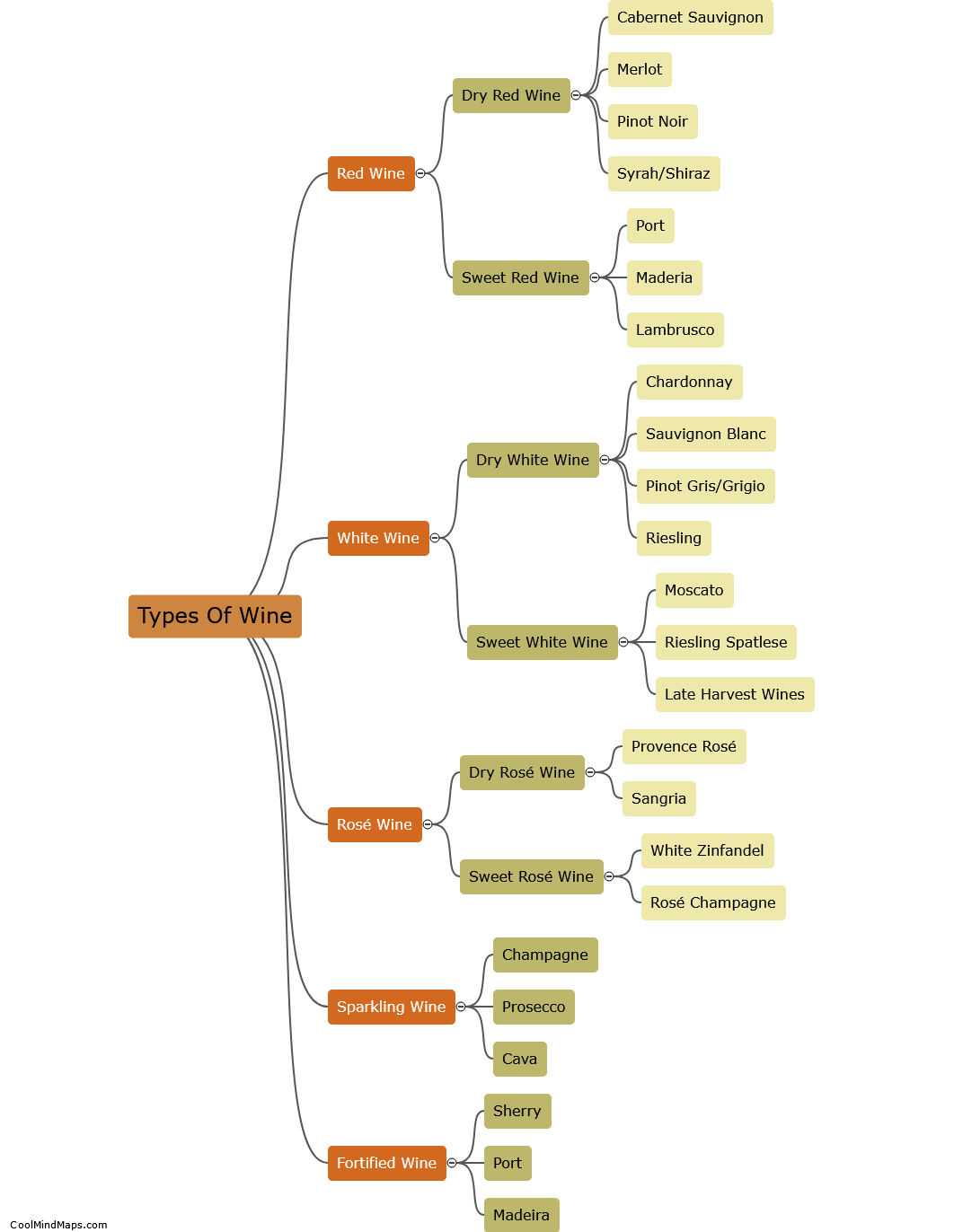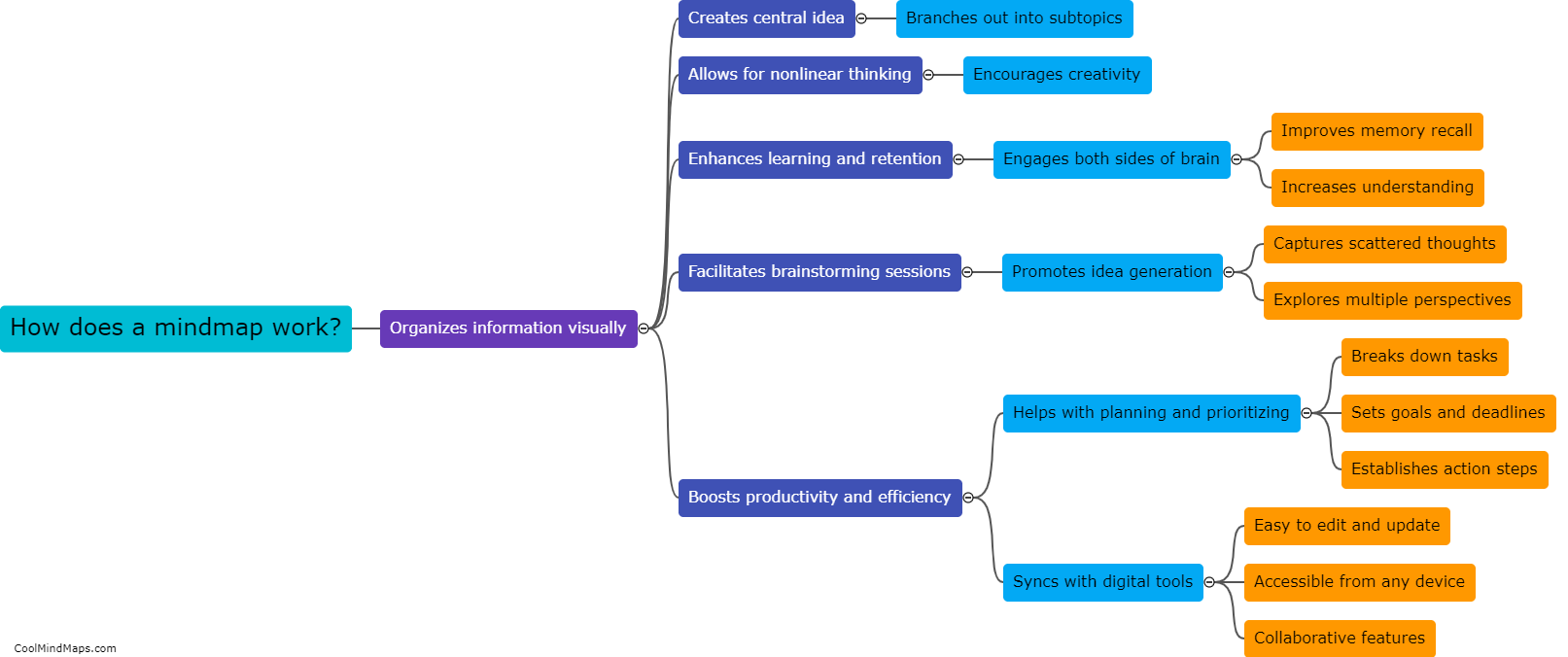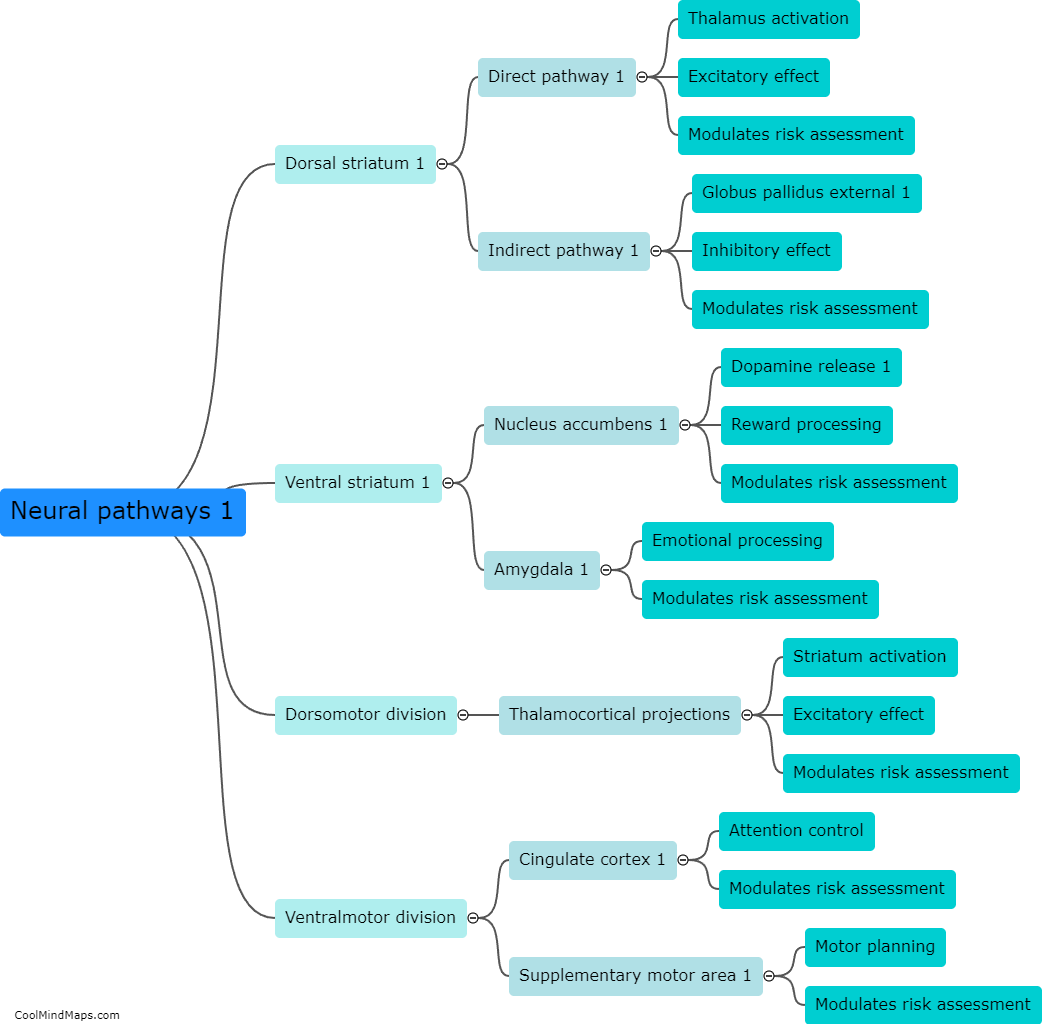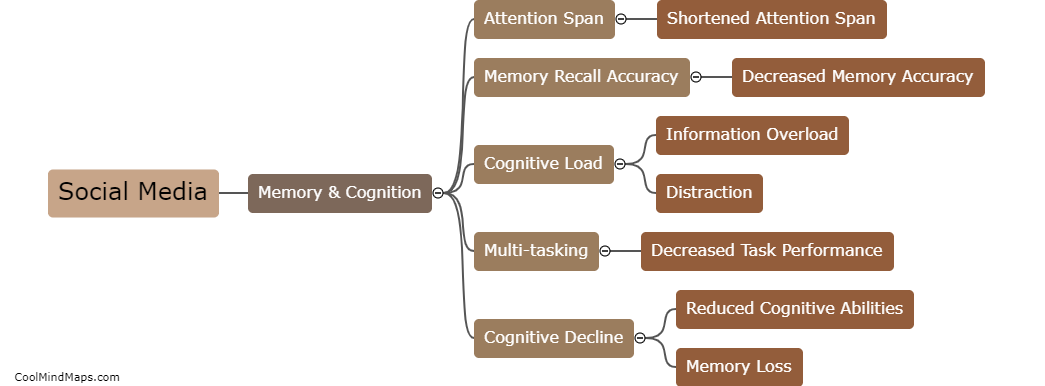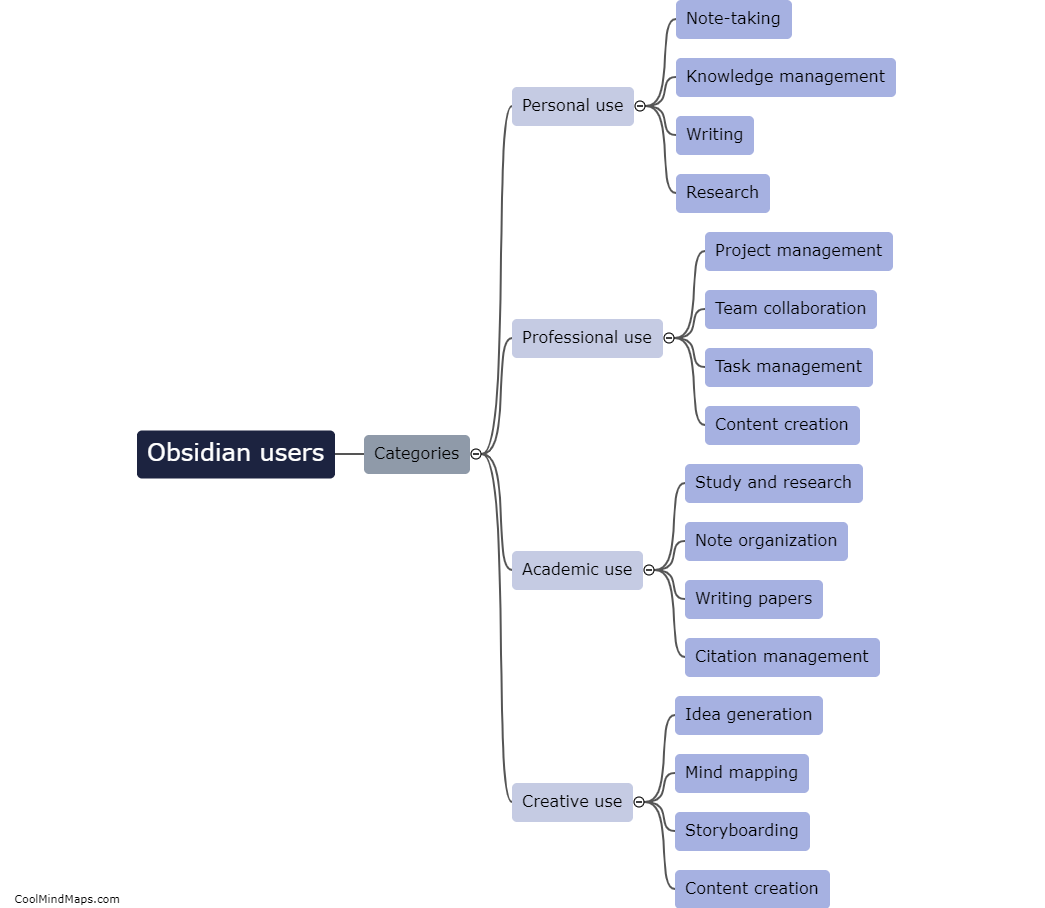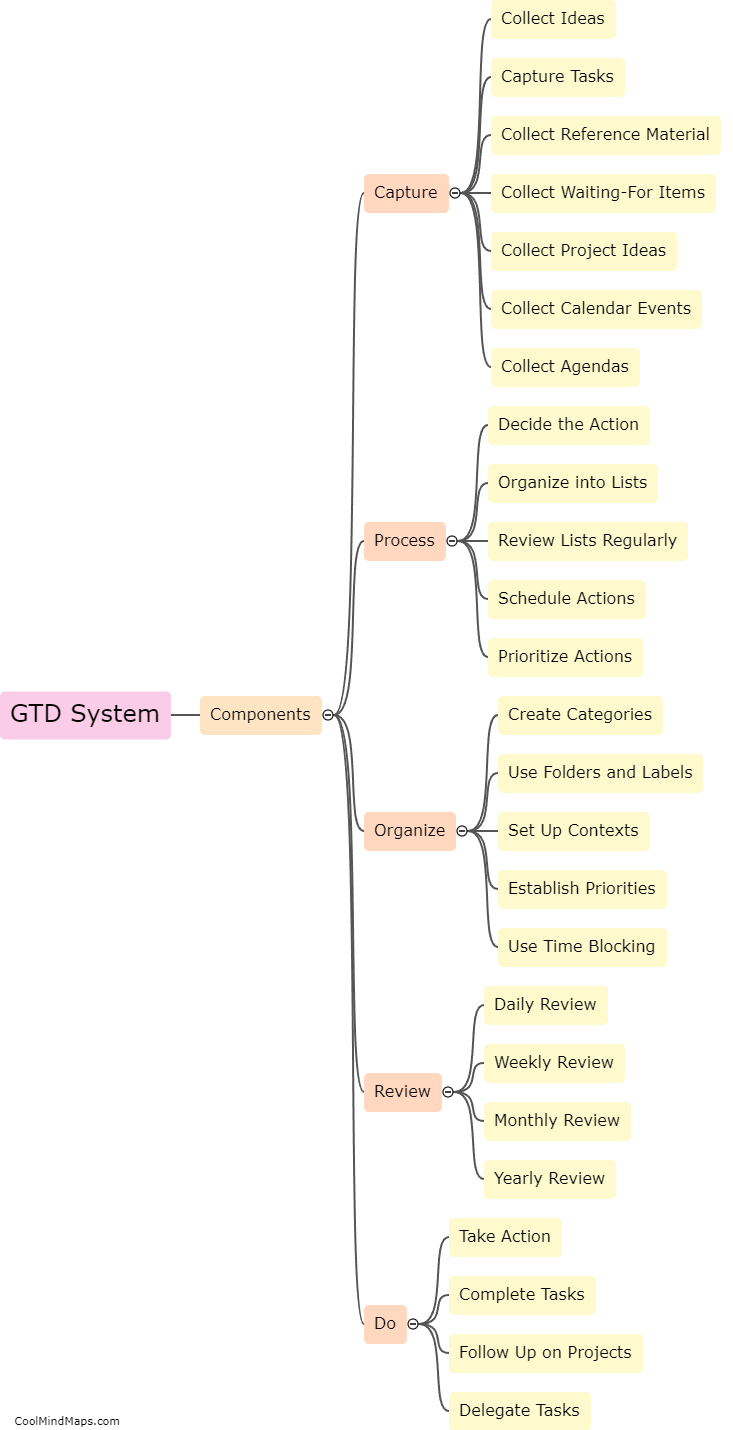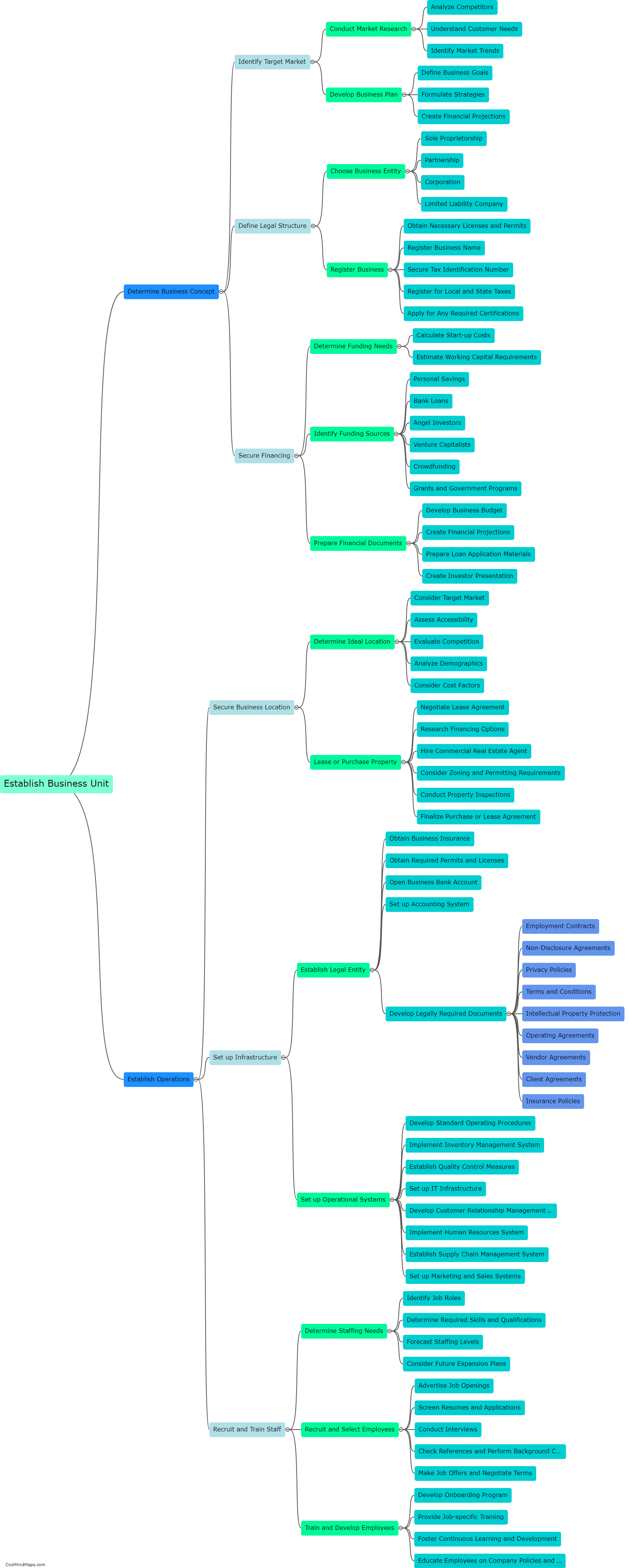How does the brain perceive time?
The brain's perception of time is a complex and multifaceted process that involves numerous cognitive mechanisms and neural networks. Time perception is not a single unified system but is instead influenced by various factors such as attention, memory, emotions, and sensory inputs. The brain relies on different regions and circuits to process and encode temporal information, including the prefrontal cortex, basal ganglia, and cerebellum. Additionally, external cues, internal rhythms, and past experiences play a crucial role in shaping our subjective perception of time. The brain's ability to accurately perceive and measure time is essential for a wide range of functions, including motor coordination, decision-making, and the formation of memories. Nonetheless, the exact mechanisms by which the brain perceives time remain the subject of ongoing research and investigation.

This mind map was published on 20 October 2023 and has been viewed 111 times.
